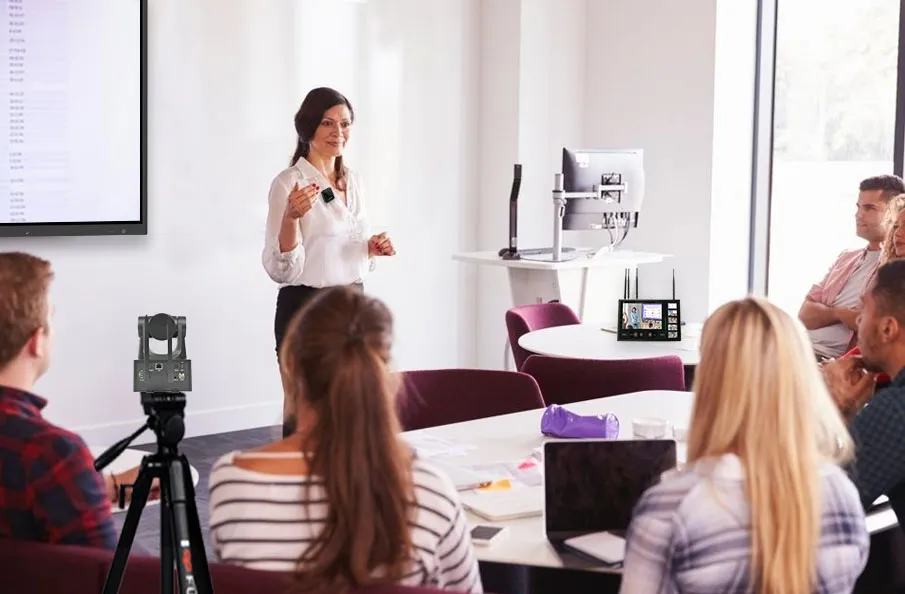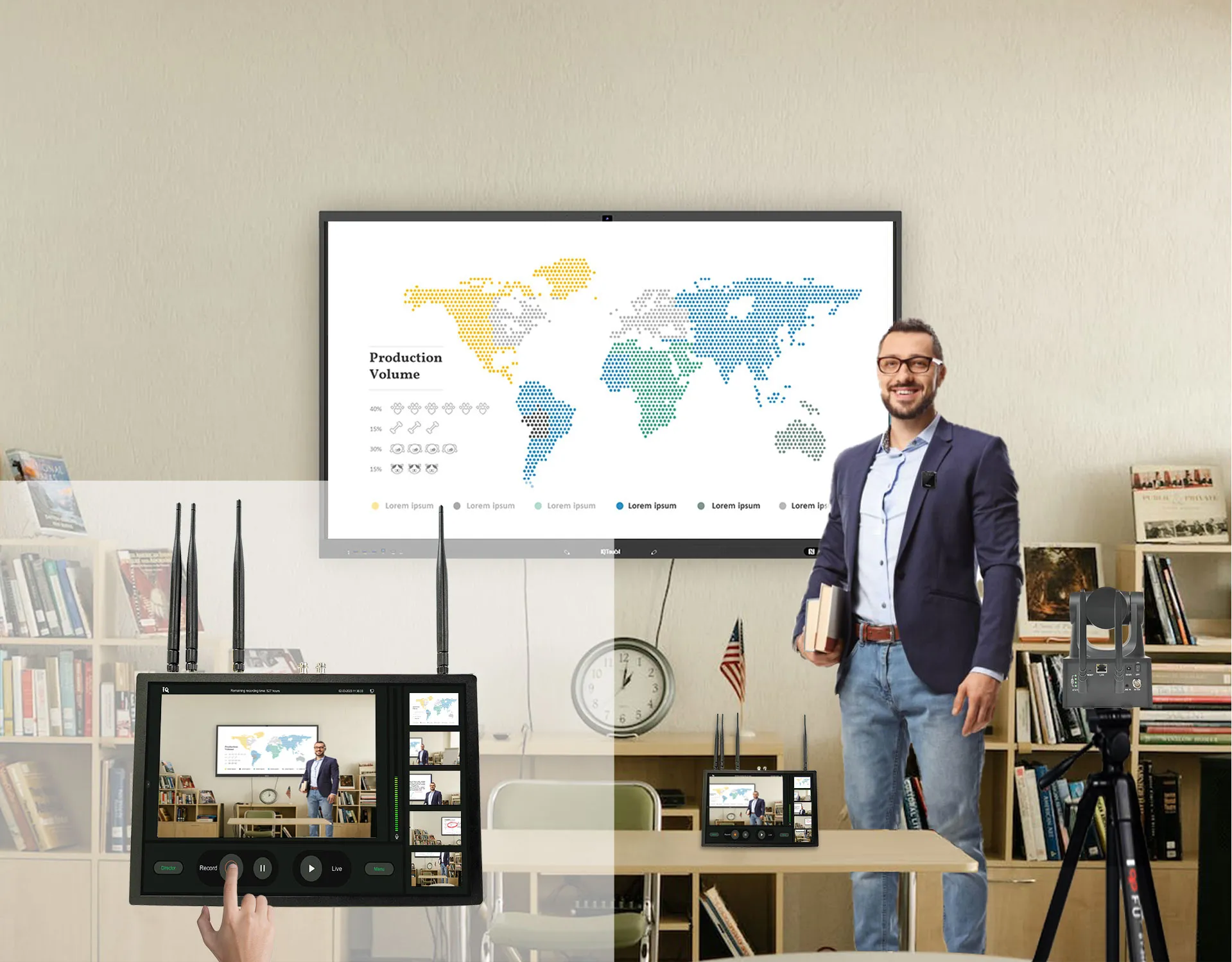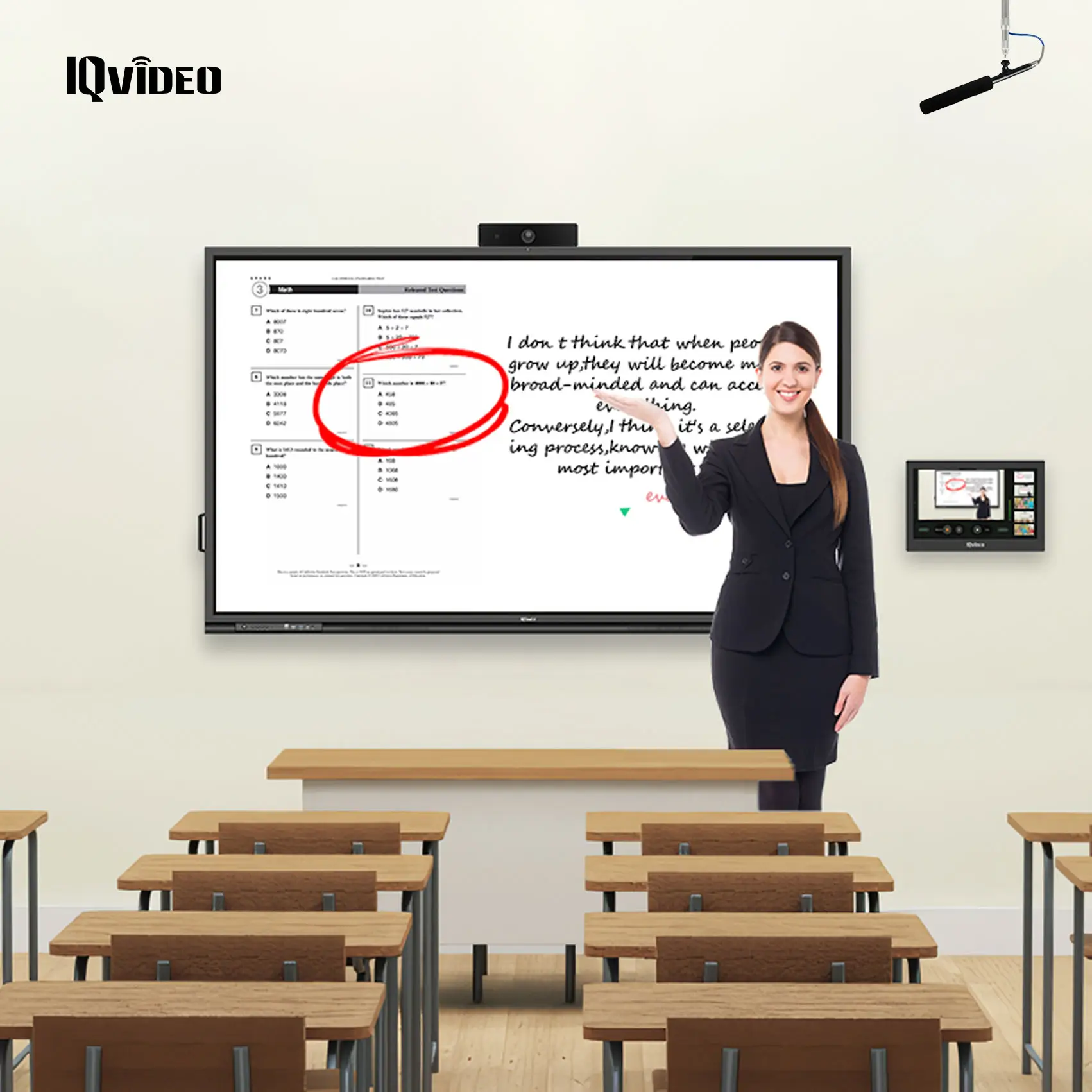
A lecture capture system is essentially a technology that records and stores lectures, making them available for students to access at their convenience. There are several types of lecture capture systems, each with its own unique features and capabilities.
Video Recording Systems: These systems capture both audio and video content, providing a comprehensive recording of the lecture. IQVideo lecture capture is based on the video recording system.
Audio Recording Systems: These systems focus solely on capturing audio content, which can be useful in situations where video recording is not feasible or desired.
Hybrid Systems: These systems combine elements of both video and audio recording, offering flexibility and customization options.
The benefits of lecture capture systems are numerous and extend to both instructors and students. For instructors, these systems can streamline their workflow, improve student engagement, and enhance teaching effectiveness. For students, they provide greater flexibility, accessibility, and opportunities for personalized learning.
One of the most significant advantages of lecture capture systems is their ability to improve accessibility and flexibility. Students can access recorded lectures on-demand, allowing them to review the material at their own pace and convenience. This is particularly beneficial for students who miss class due to illness, work commitments, or other reasons. Additionally, lecture capture systems can facilitate remote learning, making it possible for students to access course content from anywhere in the world.
Lecture capture systems can also enhance student engagement by providing opportunities for personalized learning. Students can use the recordings to review difficult concepts, identify areas where they need additional support, and ask questions during office hours or online forums. This personalized approach can lead to a deeper understanding of the material and improved academic performance.
Moreover, lecture capture systems can streamline the workflow for instructors by saving time and improving organization. By recording lectures, instructors can avoid the need to create and distribute handouts or other supplementary materials. Additionally, these systems can help instructors stay organized by providing a central repository for all course materials.

Implementing a lecture capture system in a smart campus requires careful planning and consideration. The first step is to choose the right system based on the specific needs and goals of the institution. Factors to consider include the size of the campus, the types of lectures being recorded, and the budget.
Once a system has been selected, it is important to address technical considerations such as hardware requirements, network infrastructure, and data storage. Additionally, it is essential to provide training and support to faculty and staff to ensure that they can effectively use the system.
To maximize the benefits of lecture capture systems, it is important to follow best practices for their use. This includes effective planning and preparation for lectures, engaging content delivery, and post-lecture review and feedback.
By carefully planning and preparing for lectures, instructors can ensure that the recordings are clear, concise, and easy to follow. Engaging content delivery is also crucial for keeping students interested and motivated. Finally, post-lecture review and feedback can help instructors identify areas for improvement and tailor their teaching methods to meet the needs of their students.

While lecture capture systems offer numerous benefits, they also present some challenges and concerns. One of the main concerns is privacy and copyright issues. Institutions must ensure that they have appropriate policies in place to protect the privacy of students and faculty, as well as to comply with copyright laws.
Technical difficulties can also arise when using lecture capture systems. These may include issues with hardware, software, or network connectivity. It is important to have a plan in place to address these challenges and minimize disruptions to teaching and learning.
Finally, there may be resistance from faculty or students to the use of lecture capture systems. Some faculty members may be concerned about the impact on their teaching style or the potential for misuse of the recordings. Similarly, some students may be hesitant to use these systems due to privacy concerns or a preference for traditional teaching methods.
Lecture capture systems have the potential to revolutionize teaching and learning in smart campuses. By providing greater accessibility, flexibility, and engagement opportunities, these systems can enhance student outcomes and improve teaching efficiency. While there may be challenges and concerns to address, the benefits of lecture capture systems far outweigh the drawbacks. As technology continues to advance, we can expect to see even more innovative and effective lecture capture solutions emerge in the years to come. Click here to learn more about the lecture capture system.
1. What are the different types of lecture capture systems?
There are three main types of lecture capture systems: video recording systems, audio recording systems, and hybrid systems.
2. How can lecture capture systems improve student engagement?
Lecture capture systems can enhance student engagement by providing opportunities for personalized learning, active participation, and on-demand access to course materials.
3. What are the potential privacy and copyright concerns associated with lecture capture systems?
Institutions must have appropriate policies in place to protect the privacy of students and faculty, as well as to comply with copyright laws.
4. How can institutions address resistance from faculty or students to the use of lecture capture systems?
Institutions can address resistance by providing training and support, addressing concerns about privacy and copyright, and highlighting the benefits of these systems.
Here are some other articles that we think might interest you:
Unleashing the Versatility: 5 Dynamic Application Scenarios of IQVideo Lecture Capture System
Top 10 Reasons Why Teachers Embrace the Lecture Capture System
What is the Best Lecture Capture System for Recording Lessons in 2024?
Copyright © 2017.Returnstar Interactive Technology Group Co., Ltd All rights reserved.
